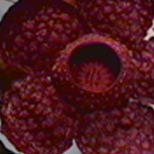A turtle conversation
Conversation with an ancient turtle:
 .
.
Once again Al jazeera has nailed it. While the Museum of Antiquities (containing the first examples of human writing) was looted into oblivion (because the American occupation forces couldn’t spare a few soldiers to protect it), the Iraqi Ministry of Oil escaped the bombing and looting, unscathed. It had been heavily guarded by American troops since the invasion forces entered the capital. Sometimes the obvious is just obvious.
It’s come to light that some of the ‘enemy combatants’ imprisoned at camp X-ray in Guantanamo Bay Cuba are children under 16 years of age. They are detained without charges and have no access to lawyers or their families. What is this ‘freedom’ thing that America is fighting for anyway?
I nearly fell out of my chair in disbelief watching Barry Diller, (the CEO and chairman of USA Interactive, and founder of FOX Broadcasting) call for more media diversification and to keep some vestige of regulation on the concentration of media ownership in the United States. Maybe having only 5 companies controlling all broadcasting has become just too boring for even the oligopolists? He did say that ‘young’ people are turning to the Internet in droves. So what else is new? Still it was worth hearing one of the titans of the World Information Order use the word ‘oligopoly.’
Turtles are near and dear to my heart. Many are threatened with extinction. As I type this, my companion box turtle is glaring up at me balefully from my office floor. I have had him since 1967, since I was a young boy. This little refugee from the Triassic has lived through the Vietnam era, my adolescence, the invention of the personal computer, the Gulf Wars, and HIV. He is still basically interested in the same things he always was: food and chasing (the even older) female turtle around in a kind of elephantine march around my office. Looking at turtles often makes me weep. They are everything that we precocious, quick breeding, tool using, naked apes are not. They are conservative, slow growing and long lived. They are vulnerable in the extreme because they think that they are safe when they withdraw into their bony shells. Everything eats their eggs, they get caught in shrimp nets, crushed when they crawl across freeways and cooked into allegedly medicinal soups. I have seen their sad, confused faces gazing from fish crates on the Bowery, crowded into rank aquariums in low-end pet stores and tormented in buckets by cruel, pre-adolescent boys. I have a visceral memory of an enormous snapping turtle, covered in mud and moss laying perfectly spherical, glistening white eggs into the gravel beside a busy highway in a bleak Toronto suburb. The turtle was weeping with its exertion, or perhaps from the futility it perceived of its attempt at reproduction. The swamp it had always lived in had become a vestigial pot hole, filled with abandoned shopping carts. The sandbank that had sheltered generations of its young was now covered in pavement. Yet the ancient turtle carried on — I would like to say ‘oblivously,’ but I think not. Somehow it must have known what was happening to it. A world inhospitable to turtles would be a severely diminished place. We should all try to make their acquaintance before it is too late.



